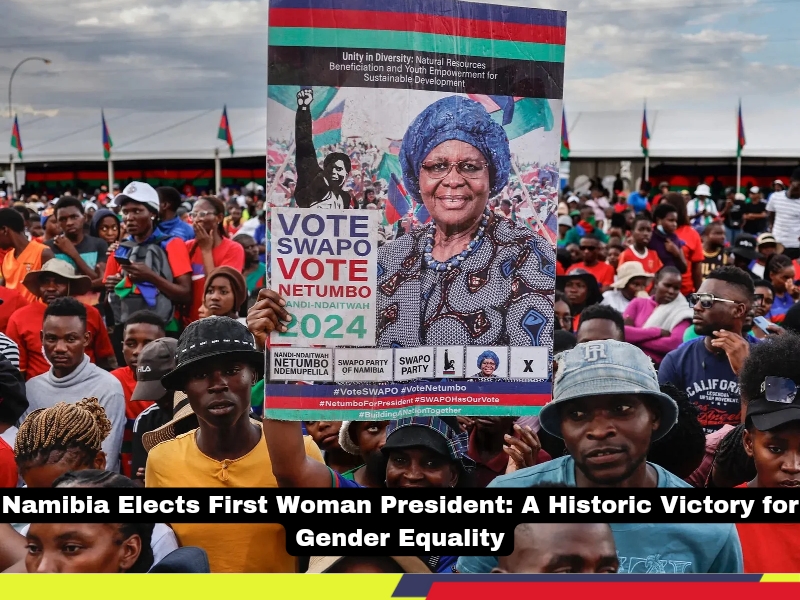In a remarkable turn for Namibian politics, the country has elected its first female president, Netumbo Nandi-Ndaitwah, in a general election that also reaffirmed the dominance of the ruling South West Africa People’s Organization (SWAPO). This outcome stands in stark contrast to recent trends across southern Africa, where several long-standing ruling parties have ceded power to opposition groups.
A Milestone for Women in Leadership
Netumbo Nandi-Ndaitwah, 72, is no stranger to leadership. Before her historic win, she served as Namibia’s deputy prime minister and minister of international relations and cooperation. Her election marks a significant moment for gender representation in Africa, as she joins the ranks of the few women to have led nations on the continent.
Nandi-Ndaitwah’s victory underscores her political acumen and ability to maintain SWAPO’s grip on power despite growing economic challenges and a shifting political landscape. She secured 57.31% of the presidential vote, reaffirming SWAPO’s continued influence since Namibia gained independence over three decades ago.
SWAPO’s Challenges and Resilience
While SWAPO retained power, its parliamentary majority has diminished. The party won 51 out of 96 seats, a drop from the 63 seats it secured in the 2019 elections. This decline reflects widespread frustration with Namibia’s stagnant economy, which has struggled to recover from the pandemic and grappled with high unemployment rates.
Panduleni Itula’s Independent Patriots for Change (IPC), a breakaway group from SWAPO founded in 2020, emerged as a strong opposition force, winning 20 parliamentary seats. Thirteen other opposition parties divided the remaining seats, signaling a growing appetite for political diversity among Namibian voters.
A Nation at a Crossroads
Namibia, rich in mineral resources, faces significant economic challenges, including high youth unemployment and slow economic growth. Nandi-Ndaitwah has pledged to address these issues, emphasizing policies that promote economic recovery and social equity.
Her leadership will also be pivotal in maintaining Namibia’s regional influence, particularly as the country navigates its relationships within the Southern African Development Community (SADC) and beyond.
A Step Forward for Southern Africa
Nandi-Ndaitwah’s victory is not just a win for Namibia; it is a milestone for gender equality in leadership across Africa. In a region where female heads of state remain a rarity, her election offers hope and inspiration for women aspiring to break barriers in politics and governance.
As Namibia looks to the future under its first female president, the nation stands as a testament to the progress possible when political systems adapt to the evolving demands of their citizens. Whether Nandi-Ndaitwah’s presidency will address the challenges facing Namibia remains to be seen, but her election has already reshaped the country’s political narrative.




